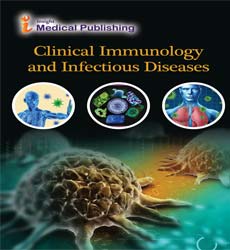Evaluation of ceftriaxone use in the medical wards of Universiti Kebangsaan Malaysia Medical Centre (UKMMC) and its outcome
Ceftriaxone is a broad-spectrum antibiotic used to treat or prevent bacterial infections. It has a wide range of gram-negative activity and some gram-positive activity, making it one of the most widely used antibiotics. This study is a prospective study evaluating the use of ceftriaxone in the medical wards. It was the first drug evaluation conducted on ceftriaxone in medical wards of UKMMC. Inpatient records were screened for patients receiving ceftriaxone between August 2018 to December 2018. The appropriateness of ceftriaxone was assessed on the basis of 5 parameters: according to type of therapy (empirical, prophylactic, targeted), indication based on source of infection, total daily dose, dosing frequency, and culture & sensitivity tests. Therapy was deemed appropriate if all 5 criteria were met by the study participants according to local and international antibiotic protocols. Deviation in any of the criteria was considered inappropriate. Patients were followed-up until discharge. Clinical success was considered when there is resolution of signs and symptoms. Clinical failure was considered when there is escalation of antibiotics due to clinical worsening. 325 patients were included. Ceftriaxone use was empirical in 92.9% of patients and one third was indicated for pneumonia (35.4%). The majority of patients were prescribed a total daily dose of 2 g (94.5%) and once daily (96%). Median duration of treatment was 5.0 (IQR 4.0 - 7.0) days. Blood culture and sensitivity test was done in 97.8% of patients. Overall, inappropriate use of ceftriaxone was 55.7%, mostly attributed by inappropriate type of therapy and indication. Factors associated with appropriateness are: concomitant antibiotics.
Open Access Journals
- Aquaculture & Veterinary Science
- Chemistry & Chemical Sciences
- Clinical Sciences
- Engineering
- General Science
- Genetics & Molecular Biology
- Health Care & Nursing
- Immunology & Microbiology
- Materials Science
- Mathematics & Physics
- Medical Sciences
- Neurology & Psychiatry
- Oncology & Cancer Science
- Pharmaceutical Sciences
